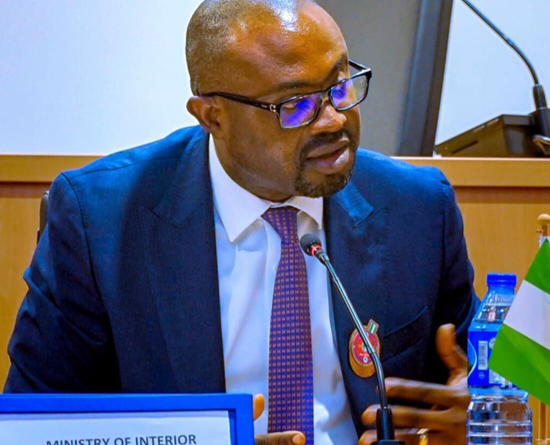From Punishment to Empowerment: Tunji Ojo’s Vision For Nigeria’s Correctional System
For decades, Nigeria’s correctional centers have carried the heavy stigma of punishment and social exclusion. Inmates were often written off, condemned not just by the law but by society.
But under the dynamic leadership of Hon. Dr. Olubunmi Tunji Ojo, Minister of Interior, this narrative is changing dramatically and irreversibly.
Dr. Tunji Ojo envisions a correctional system where justice is not synonymous with despair and where offenders are given a genuine chance at rehabilitation and reintegration. His reforms are turning correctional centers into hubs of education, skills development, and empowerment, aligning Nigeria’s practices with global best standards.
A shining example of this vision is the newly inaugurated National Open University of Nigeria (NOUN) Special Study Centre at the Abakaliki Correctional Centre in Ebonyi State. The center gives inmates unprecedented access to quality higher education, enabling them to earn undergraduate and postgraduate degrees while serving their sentences. Already, 28 inmates have enrolled, 25 for undergraduate programs and three for master’s degrees.
For many, this opportunity represents more than academic advancement; it signifies hope, dignity, and the promise of a second chance. Dr. Tunji Ojo has been emphatic about his philosophy:
“I don’t want our correctional centers to be places of condemnation. Correctional service is becoming transformational, rehabilitative, and of course reformatory, and that’s what I want to see,” he asserts.
His vision extends beyond education. Through skills acquisition programs and initiatives like the inmate-crafted products showroom in Maiduguri, supported by the UNODC, the German government, and the U.S. Bureau of International Narcotics and Law Enforcement Affairs, inmates are being equipped with practical income-generating skills to prepare them for life after incarceration.
These reforms are not just policy changes; they are human transformations. They reduce recidivism, combat societal stigma, and offer rehabilitated individuals a pathway to meaningful employment and productive citizenship.
By shifting Nigeria’s correctional philosophy from punishment to empowerment, Dr. Tunji Ojo is reshaping the country’s justice landscape and reaffirming the government’s belief in second chances.
His work embodies the spirit of the Renewed Hope Agenda, one where governance does not just enforce the law but uplifts humanity.
In Dr. Tunji Ojo, Nigeria has found a reformer who believes that every life is redeemable and that justice is incomplete without rehabilitation.




